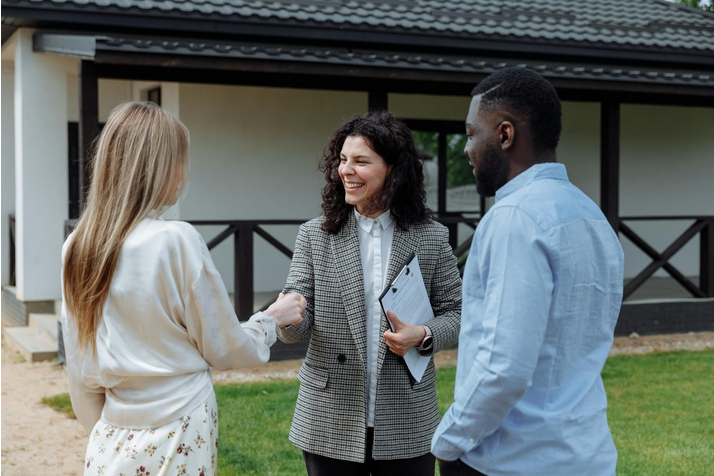Categories
First-Time Home Buyers, Real EstatePublished April 7, 2025
Pt. 1 A Beginner's Guide to Purchasing a Home: Are You Ready to Buy?

A Beginner's Guide to Purchasing a Home: Everything First-Time Buyers Need to Know
“Mug & Muse – Your daily dose of news, insights, and inspiration, perfectly brewed for your cup of coffee. In just 15 minutes, we serve up bite-sized stories, trending topics, and thought-provoking musings to keep you informed and inspired—one sip at a time. #SipThinkRepeat”.
Have you ever walked past a charming house with a "For Sale" sign and thought, "What if that could be mine?" I certainly have. Buying your first home is like embarking on an adventure – exciting, a little scary, and filled with possibilities. But unlike most adventures, this one comes with mortgage applications and closing costs!
As someone who's helped countless first-time buyers navigate this journey, I've seen the mixture of excitement and anxiety that comes with making possibly the biggest purchase of your life. Don't worry – with the right preparation and knowledge, you can turn this complex process into a manageable and even enjoyable experience.
In this guide, I'll walk you through everything you need to know about buying your first home in the USA – from checking your credit score to getting the keys to your new front door. Let's take this journey together, one step at a time.
First Things First: Are You Ready to Buy?
Before you start browsing listings on our website or daydreaming about paint colors, let's talk about the foundation of your home-buying journey: your financial readiness.
Checking Your Financial Health
What is the first step in buying a home?
The answer might surprise you – it's not looking at houses or even talking to a real estate agent. The very first step is taking a good, honest look at your finances.
I remember my friend Sarah who was convinced she was ready to buy. She had a stable job and some savings, but when she checked her credit score, she discovered some issues that needed addressing. Taking six months to improve her score saved her thousands in interest over the life of her loan.
Here's a quick financial checklist:
-
Check your credit score: Most lenders require a score of at least 620, though some first-time homebuyer programs accept lower scores.
-
Review your debt-to-income ratio: Ideally, your monthly debt payments (including your future mortgage) shouldn't exceed 43% of your monthly income.
-
Assess your savings: You'll need money not just for a down payment, but also for closing costs, moving expenses, and an emergency fund for unexpected repairs.
-
Evaluate your job stability: Lenders like to see at least two years of steady income.
Understanding the True Cost of Homeownership
How much money do I need to buy a home?
This question is more complex than it seems. The amount you need depends on several factors:
-
Down payment: Traditionally 20% of the home price, though many first-time homebuyer programs allow for as little as 3-5% down.
-
Closing costs: Typically 2-5% of the loan amount.
-
Moving costs: Don't underestimate these – they can add up quickly!
-
Immediate repairs or updates: That 1970s wallpaper might need to go immediately.
-
Reserves: Most lenders want to see that you'll have money left after closing.
Let's put this into perspective with a simple table:
Remember, these numbers will vary based on your location, the property you choose, and your specific financial situation. But having a ballpark figure helps set realistic expectations.
As we wrap up this beginner's guide, it's clear that buying your first home is both exciting and complex. From financial readiness to understanding costs, every step is crucial. But the journey doesn't end here. Stay tuned for Part 2, where we'll dive into mortgage options, home inspections, and more. Grab another cup of coffee, and let's continue exploring the world of real estate together! #SipThinkRepeat
.png)





